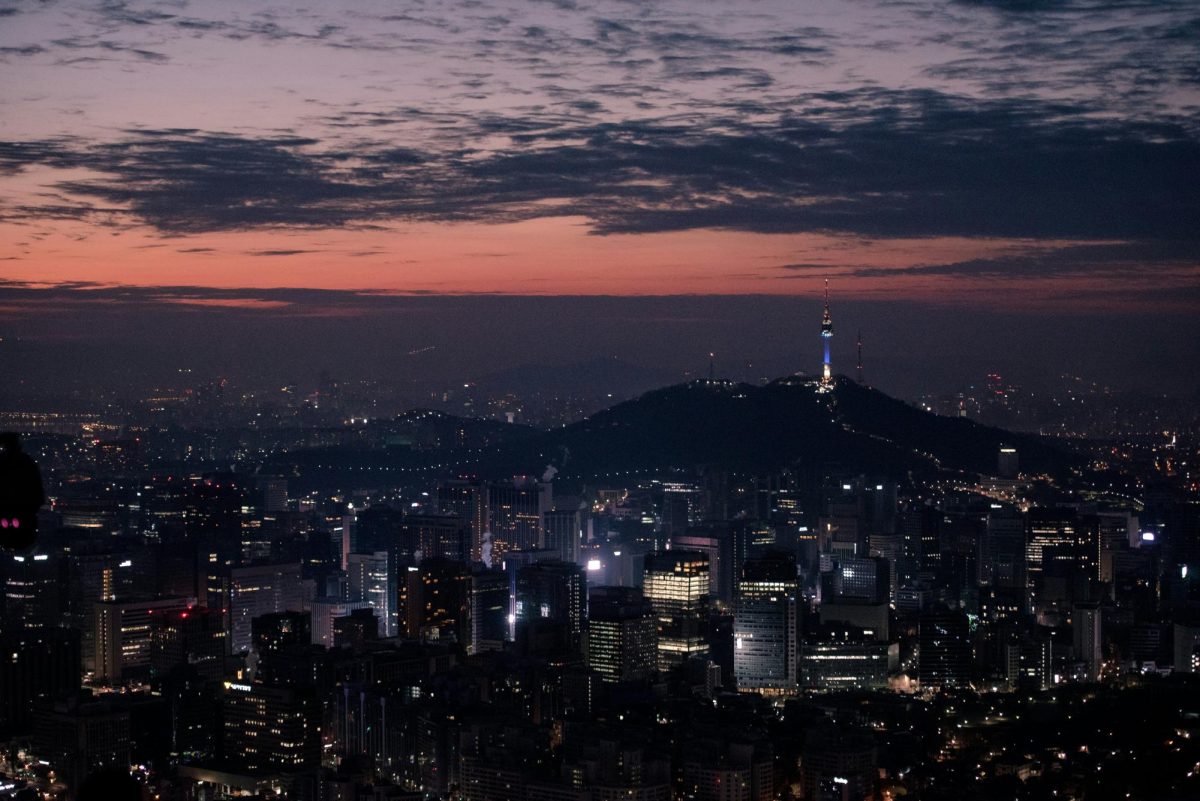
Like many actors with higher aspirations before her, Angelina Jolie has made the transition from in front of the camera to the director’s chair. Since her first feature, Jolie has directed four films, three of which were about the brutality of war.
Jolie’s new film “First They Killed My Father: A Daughter of Cambodia Remembers,” released through Netflix’s movie studio, tells the story of a young girl, Loung Ung, whose family finds themselves living under the Khmer Rouge’s rule in 1970s Cambodia.
Loung is living a privileged life in Cambodia with her family of eight due to her father’s government job. But that all changes when Loung and her family are forced to leave their community and walk a great distance to an unknown location. From here, we watch this close family slowly get torn apart as they go from work camp to work camp and suffer the horrors of genocide.
Jolie has decided to tell this story through the eyes of Loung, and this is where the film takes its greatest hit. It is natural for a child as young as Loung to be confused. Jolie conveys her sense of disorientation when she overhears statements made by her father that contradict what her mother is telling her and her siblings.
But the result of such a young point of view is that it makes the audience confused as well, especially if the audience doesn’t have any prior knowledge of this event. An average Western viewer (the type of person who makes up most of Netflix’s audience) has little to no knowledge of the Cambodian genocide, so having a young child who is unable to comprehend what is happening as the narrator, does not allow the audience to learn about the actual event. It will take close concentration or even research after the film to learn who the Khmer Rouge were, since those actual words weren’t even said in the film.
Jolie also co-wrote the film with the real Loung Ung, whose 2000 memoir was the source material for the movie. Nine out of ten times when an author adapts their original work to film, it doesn’t translate well. This case isn’t really an exception. When authors convert their pieces into a screenplay, they tend to keep every idea and thought in the movie. A 200-page book will and should have more content than a two-hour film. But it appears that Ung and Jolie kept the majority of Ung’s memoir in the film, and the outcome is a choppy and uneven story.
You feel that you are watching three different films with three different narratives because putting five years of someone’s life into a two-hour feature is simply too much story. Maybe a mini-series, which provides more screen time, would have been more effective for Jolie and Ung to tell this story their way.
Despite the weak screenplay, the film is effective. In a pleasant departure from traditional Hollywood whitewashing, most of the actors are native Cambodians, including the nine-year-old star of the film (Sareum Srey Moch). Despite no acting experience, Srey Moch carried the film from start to finish. We see Loung go from an upper-middle-class child to a work camp inmate to a child soldier to a genocide survivor, and Srey Moch glides into these rapid transitions effortlessly.
It is not her delivery of the dialogue that grabs your attention, but it’s her eyes that Jolie purposely keeps hovering over throughout the film. When the film starts, they’re filled with hope and wonder, but slowly they turn to anger and hate, showing the metamorphosis war has on a young person’s psyche. Through Srey Moch’s eyes we see Loung’s childhood vanishing from her, just like her country.
The Cambodian genocide was another case of the evils of totalitarianism. It’s no wonder why there are few films about Cambodia under the Khmer Rouge regime, when the country itself is still recovering from the genocide that killed a quarter of its own people.
Even with its weaknesses, the film shows the horror of war and genocide that we, as human beings, must not forget. This is most expertly demonstrated when Loung is a child soldier for the Khmer Rouge and her camp is attacked and liberated. Her captors are shot, the camp is on fire and Loung is free. But instead of running away from the fire, she’s running toward it, calling out for her sister who was in a nearby camp that was also attacked. In her newly recognized freedom, Loung is hysterical. Yes, Loung is free. But she’s alone, she’s afraid, she’s lost and she’s seven.
Lauren LaMagna can be found at [email protected] and can be followed on twitter @laurenlamagno.



















